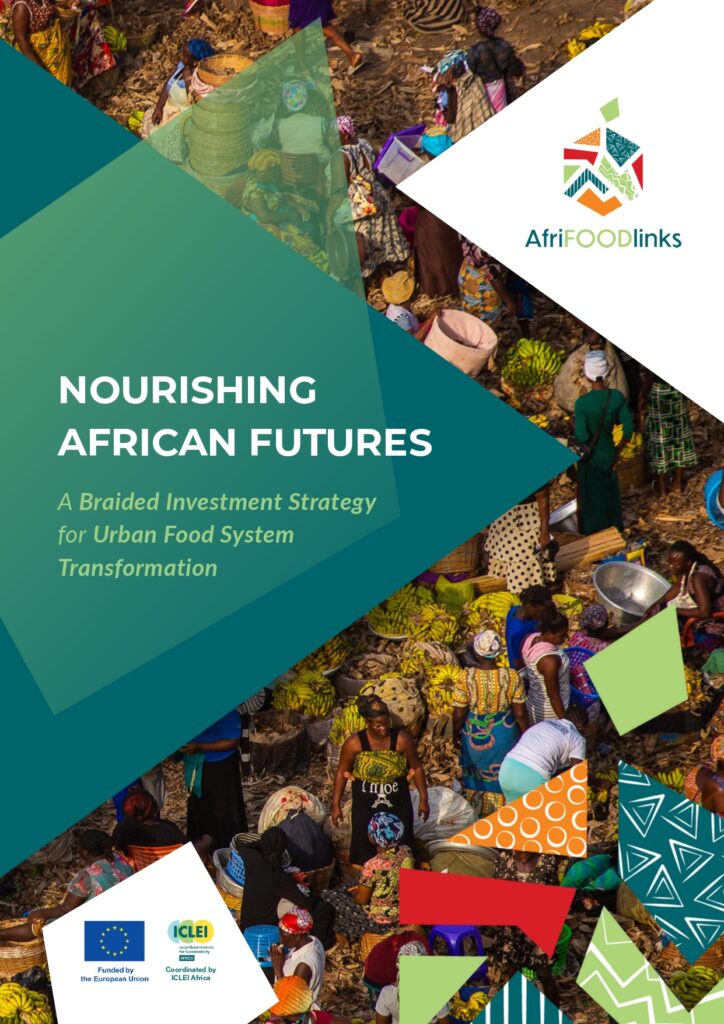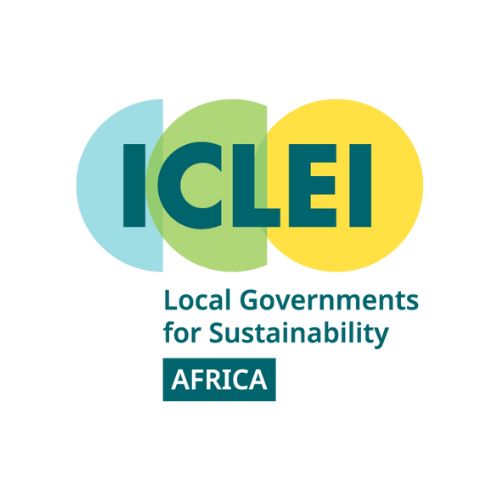Home » Explore the latest project news » Raising the urban voice at the UN Food Systems Summit and beyond
Raising the urban voice at the UN Food Systems Summit and beyond
While the African voice was loud, the urban voice remained faint
While the African voice was loud, the urban voice remained faint.
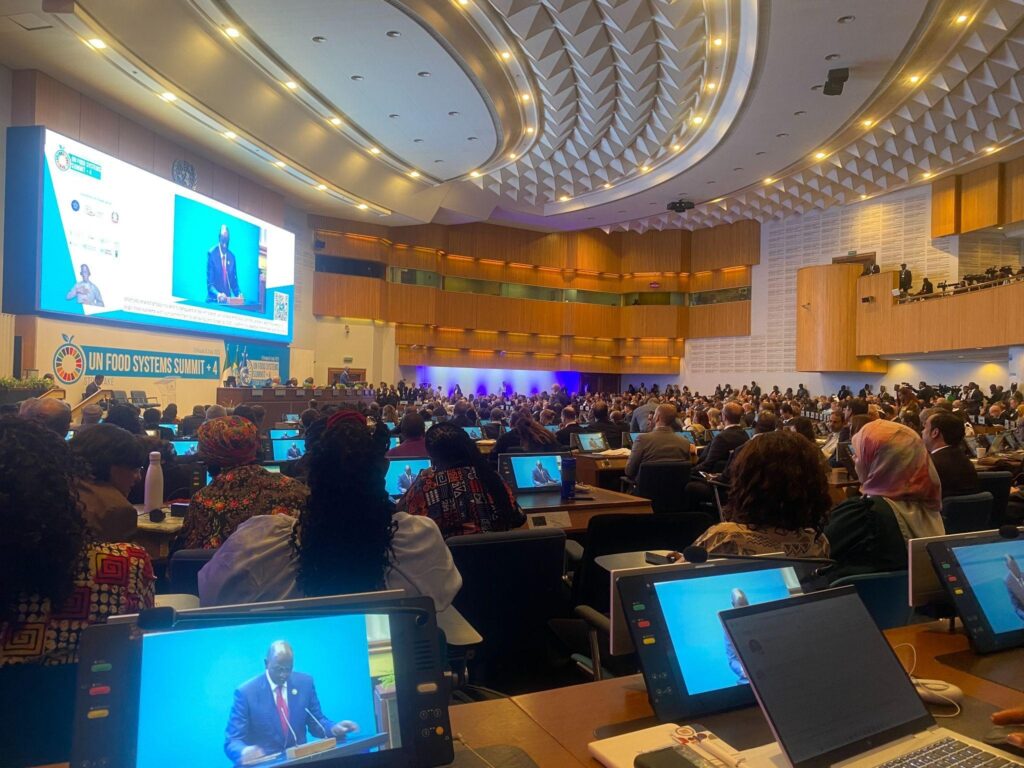
As the dust settles on the United Nations Food Systems Summit (UNFSS+4) in Addis Ababa on 27-29 July 2025, two things are clear: the global food systems agenda is consolidating and gaining momentum and Africa is no longer on the sidelines.
Ethiopia hosted this global gathering and African countries – represented by multiple heads of state including from Ethiopia, Kenya, Nigeria, and the Comoros – demonstrated clear political commitment and leadership. This was a powerful affirmation of the continent’s central role in shaping the food systems agenda going forward. However, for the AfriFOODlinks project which sees urban food environments as key areas for improving nutrition and reducing environmental impact in African cities, the Summit was a reminder to more deliberately consider the experiences and innovations of these cities within this process.
Change is possible
Global indicators on malnutrition remain unacceptably high and the world does not seem on track to meet the targets of Sustainable Development Goal (SDG) 2 – also known as “Zero Hunger” – the United Nations’ SDG focused on ending hunger, achieving food security, improving nutrition, and promoting sustainable agriculture by 2030. Yet, progress has been made across a number of global indicators – the prevalence of stunting in children under five declined from 26.4 per cent in 2012 to 23.2 percent in 2024, while the the global prevalence of moderate or severe food insecurity decreased slightly, from 28.4 in 2023 to 28.0 percent in 2024. Much larger-scale positive changes in many Latin American and Caribbean countries show that at the national level, with the right will, policies and actions, significant reduction in hunger is achievable within a relatively short time. Indeed, despite global political instability, rapidly growing populations and increasingly challenging climatic conditions, a handful of countries across Africa are registering encouraging successes against hunger, creating societies that are healthier, happier and fairer.
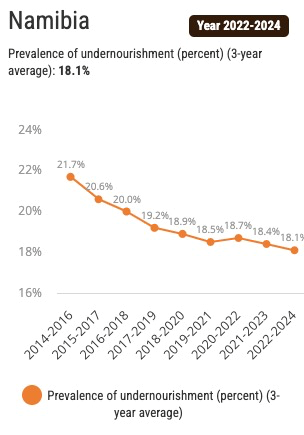
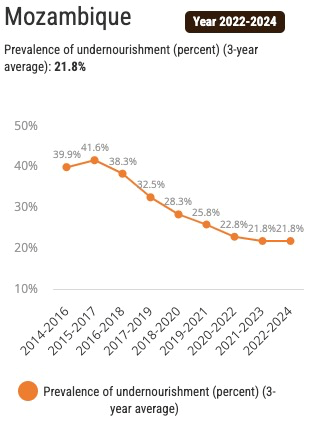
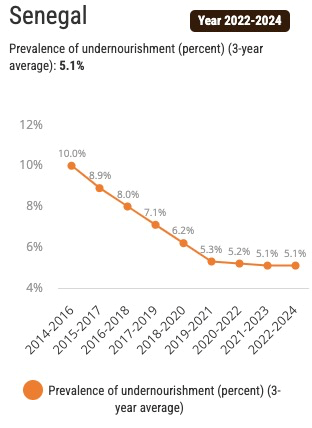
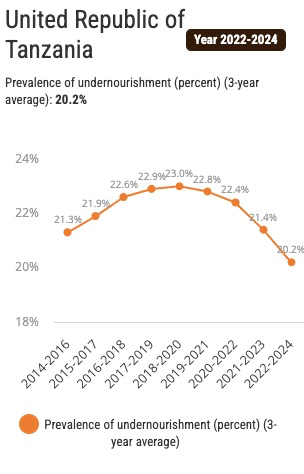
In spite of challenging global conditions, declines in undernourishment have been achieved in some African countries, including a few AfriFOODlinks project countries, over the past decade. Source: FAO, IFAD, UNICEF, WFP and WHO, 2025 State of Food Security and Nutrition report launched at UNFSS+4
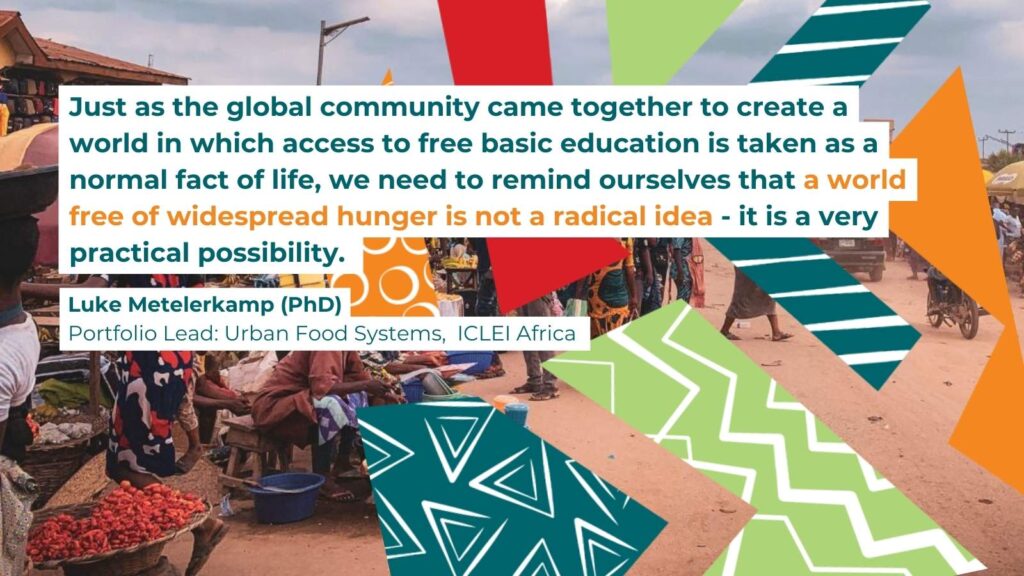
Cities still on the margins
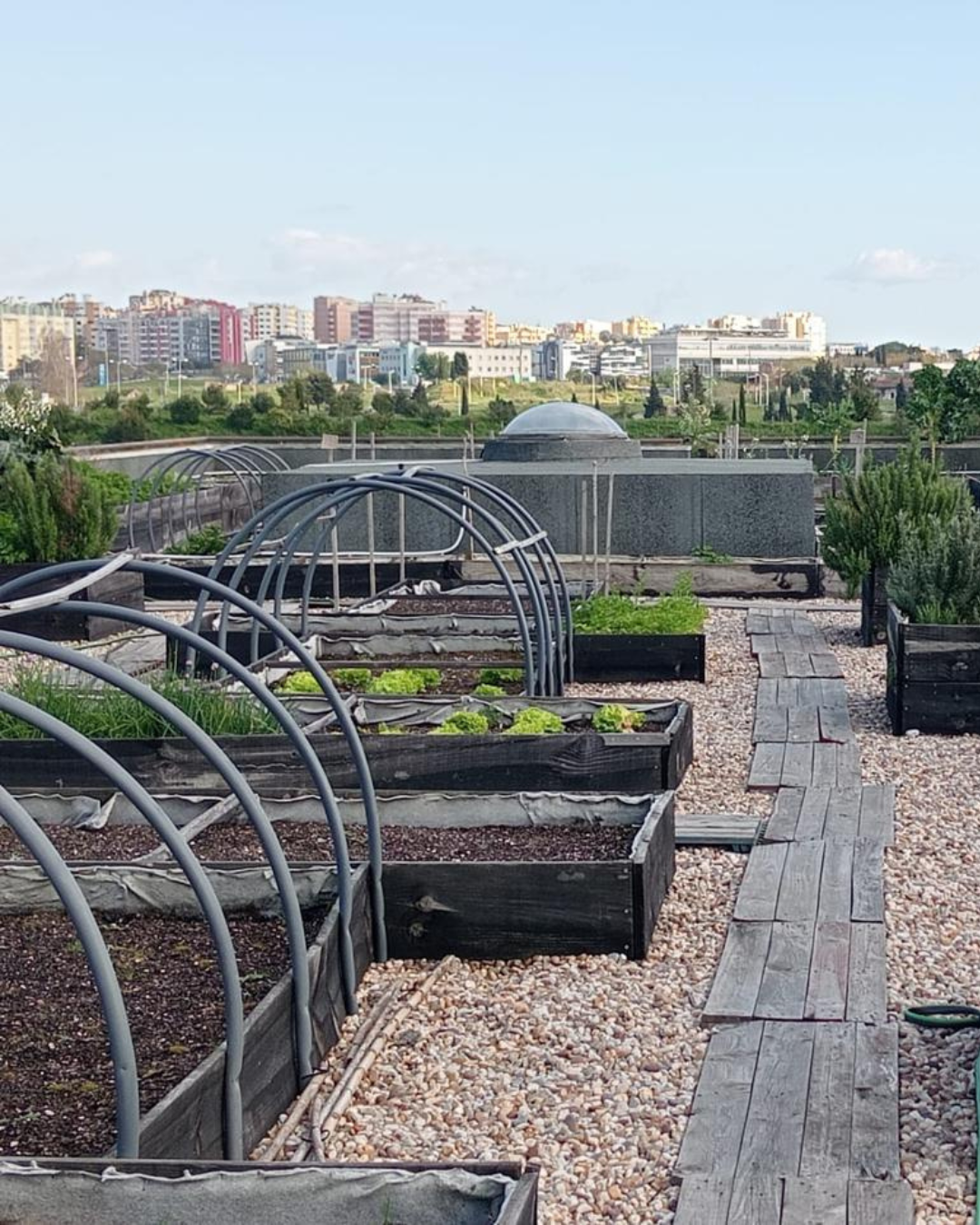
Despite Africa’s rapid urbanisations, the continent’s food systems being deeply urbanised and over 70 per cent of the world’s food being consumed in cities, urban areas received minimal attention in the Summit’s main proceedings. Instead, the agenda remained dominated by agriculturally-oriented narratives and content. Agroecology and sustainable farming were mentioned more frequently than in previous years, co-existing somewhat awkwardly alongside the scale-up logic of commodity-driven agriculture.
From the discussions, big absences were critical urban challenges, such as food-sensitive urban-planning, diet-related non-communicable diseases, urban retail dynamics, the governance of informal food markets, and urban food infrastructure. While these issues sit at the heart of AfriFOODlinks’ work, they barely surfaced in the Summit’s core discourse.
Local governments, too, were underrepresented. While there were one or two panels featuring mayors and municipal officials, they remained confined to side sessions rather than integrated into the Summit’s high-level dialogues. This omission seemed like a missed opportunity as cities are not just implementation partners – they are laboratories for innovation, policy experimentation, and the frontline of food system resilience.
AfriFOODlinks is actively demonstrating the value of local government leadership in food systems across Africa and beyond. From Lusaka’s new city food desk to school nutrition pilots in Dakar and Ouagadougou, our cities are not waiting for permission to act – they are already driving change. The Summit’s failure to elevate this role reinforces the need for our consortium to continue amplifying the importance of urban governance and multi-level coordination.
Cities still on the margins
Unsurprisingly, the conversation around finance loomed large. Many stakeholders flagged the expected decline in overseas development assistance and called for better use of national budgets and stronger engagement with the private sector. While blended finance and public-private partnerships were repeatedly promoted as solutions, private capital is a help, not a panacea. Developmental finance must remain grounded in equity, accountability, and public interest.
Learning from Brazil and beyond
Beyond Africa, Brazil featured prominently as a case study in successful multi-level food system governance, particularly its 80-year school feeding programme, which is gradually localising procurement of school food. Equally compelling is Brazil’s policy coherence across national, state, and municipal levels. These lessons could be particularly valuable to our consortium cities working on institutional procurement and food policy alignment. Building on the initial Network City collaborations we’ve hosted this year, we’re exploring ways of strengthening AfriFOODlinks’ connection to the Latin American experience over the coming year.
We also saw promising insights from Southeast Asia, where countries are piloting integrated food system strategies that balance rural production with urban consumption. From the private sector, the World Business Council for Sustainable Development called for greater policy coherence, clearer accountability mechanisms, and more dynamic partnerships with the private sector – though again, the lens must remain public-interest driven and there are questions about the suitability of private sector finance for this role.
What this means for AfriFOODlinks
If we want cities and local governments to be recognised as central actors in food system transformation, we must do more to link our work into national and global processes.
While AfriFOODlinks has been strong in bottom-up innovation, we now need to ensure those local innovations are feeding upward into national pathways, UN stocktakes, and funding decisions. This entails strengthening our consortium’s visibility in national and global fora – not only through side sessions, but by shaping the core agenda and bringing urban experiences into the high-level discourse. This would also mean that we must more consistently engage national food system leads in each of our respective countries and make our evidence, knowledge and insights available to national reporting teams, aligning with the desire of AfriFOODlinks partners and member cities to communicate more with national governments.
Amid financing conversations which loomed large at the Summit, a promising development was the launch of the Food Systems Transformation Accelerator by GAIN, FAO, IFAD, and partners. This new initiative seeks to bridge the implementation gap between national food system pathways and local actions by linking coherent policies to financing and technical support. It also aims to help track national food budgets more transparently. This presents a strategic opportunity for AfriFOODlinks to both better understand how national budgets reach (or bypass) cities, and to advocate for more resourcing of subnational food governance.
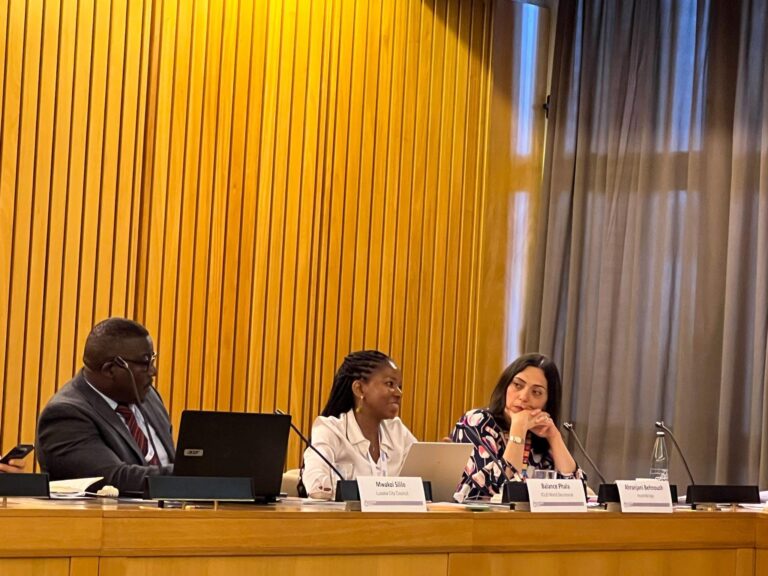
AfriFOODlinks is already helping define the future of African food systems. But if we want that future to be urban, inclusive, and just, we must drive home our research ambitions as a consortium while continuing to raise our collective voice – consistently and strategically.
Explore
"Governance"

Read more about
"Governance"
READ MORE
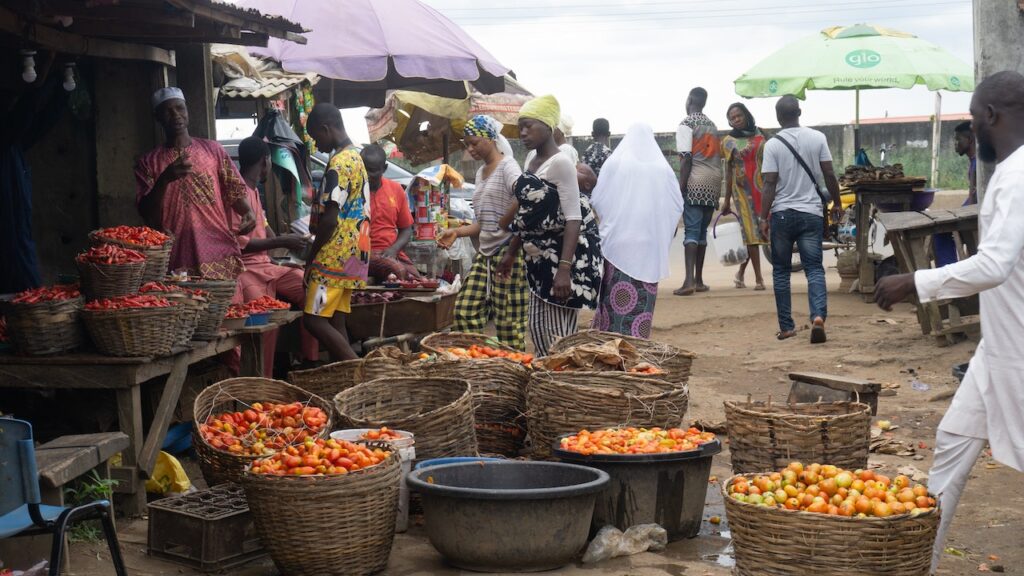
Cultivate Marketplace for transforming African urban food systems: Building bridges between cities and global funders
Unlike a traditional pitch event, the Marketplace will create a structured, low-risk space where cities and funders can learn from one another, exchange insights, and explore alignment.


